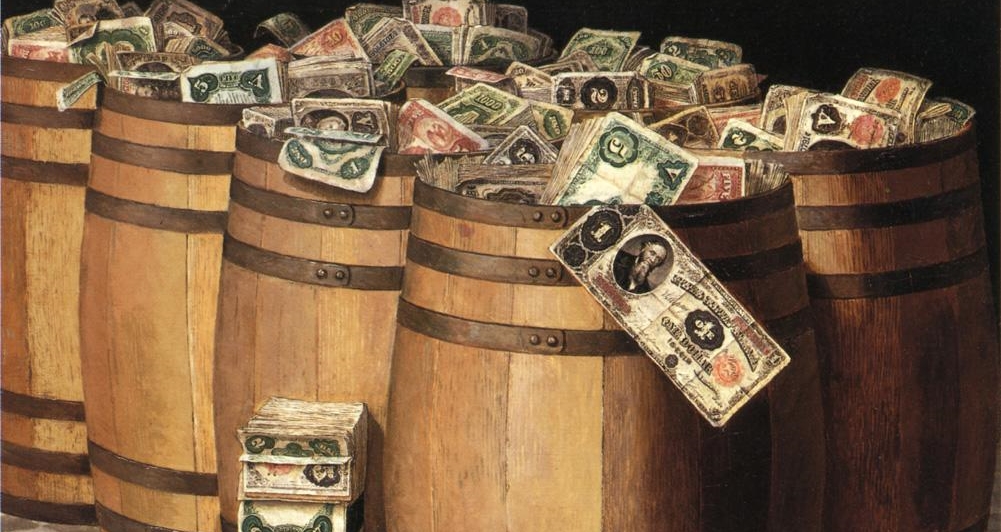At least once a year Eurostat confirms through fresh data that Bulgaria is the poorest nation in the EU. More specifically, we are talking about comparisons of GDP per capita according to purchasing power parity.
Bulgaria is once again the furthest behind according to this indicator with a GDP per person of 59% of the EU average (we have been last since 2006 when Romania got ahead of us). We did come closer with two percentage points each year from 2020 to 2022 though. The question is: can we do better? Why does it take so long?
We may find an answer in the development of other countries from Central and Eastern Europe. Traditionally, we compare ourselves with Romania, and conclusions are unfavorable – in 2022, our northern neighbor is right behind Poland and has already leveled with Portugal and Hungary while having surpassed Greece and Slovakia by a lot.
But if we are looking for a top performer, that would be Lithuania – between 2010 and 2022, its GDP/capita came closer to the EU average by 29 percentage points, compared to 24 for Romania and 14 for Bulgaria. With a longer horizon, from 2000 until now, Lithuania has managed to close the gap by 52 p.p., Romania – by 51, and Bulgaria – by 30. Now, Lithuania, together with Estonia, which is also among the best-performing countries, is approaching Italy’s economic standard and has already surpassed Spain.
The conclusion is clear: if we look at the period after the Global Financial Crisis, Bulgaria grows, but Lithuania and Romania grow much faster. From 2011 to 2022, the average real GDP growth of Bulgaria is around 2,2%, while in the other two, it is roughly 3,5%.
The big difference between Bulgaria and the high achievers is investment. No alternative other than investing in infrastructure, production capacity, and new technologies has been found to improve economic potential, stimulate innovation, and increase productivity sustainably in the long term. It is also investment that could significantly improve labor productivity and therefore wages.
Bulgaria invests little, while Romania and Lithuania – much more:
– While in the period between 2010 and 2022 Lithuanian annual capital formation grew by 6,4% on average, and in Romania – by 3,9%, in Bulgaria, we observe a decline of 0,1%. In practice, Bulgarian investments are stagnating. The situation is not improving – in the last five years, the average annual growth is barely 0,2%, while in Romania and Lithuania, it is 5,1% and 6%, respectively.
– Thus, in 2022, there was 107% more real investment in the Lithuanian economy compared to 2010, while in Romania, this difference is 57%, and in Bulgaria, it was -3%.
– In the past year, the gross formation of capital was just 15,4% of GDP – a level unseen since the mid-90s. For the past five years, it has been 17,6% of GDP, while in Lithuania that ratio is 21,2%, and in Romania – 23,4%.
An even greater difference that often remains unnoticed is that investments are not a macroeconomic abstraction but rather a source of prosperity, provided they generate competitive goods and services successfully sold on the market. For poorer and smaller economies this means exports. The large common European market provides an opportunity specifically for that.
We are used to focusing often on the decent growth rates of Bulgarian exports of industrial goods, IT services, tourism, and transport. Yet, how does Bulgaria compare to the high achievers?
– Bulgarian exports grew annually by 5,2% on average between 2011 and 2022, while in Romania and Lithuania, these rates were 7,8% and 8,1% respectively. In the past five years, the gap grew – for Bulgaria the growth rate was 2,9%, for Romania 4,5%, and for Lithuania 9,1%.
– In 2022, the real exports of Bulgarian goods and services were 81% above the 2010 level, while in Romania it was 139%, and in Lithuania – 151%.
Why Bulgaria invests so much less than Lithuania and Romania is a question that we hope politicians would prioritize in the current unstable environment.



